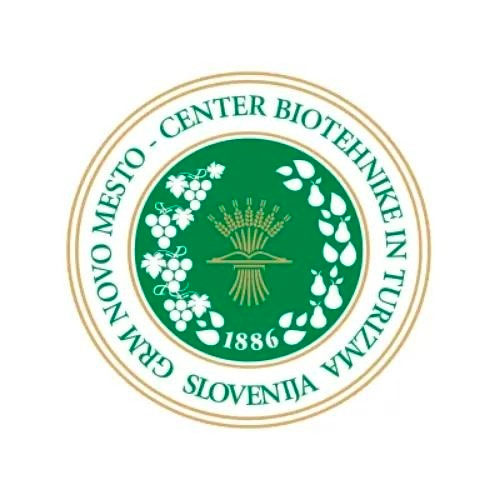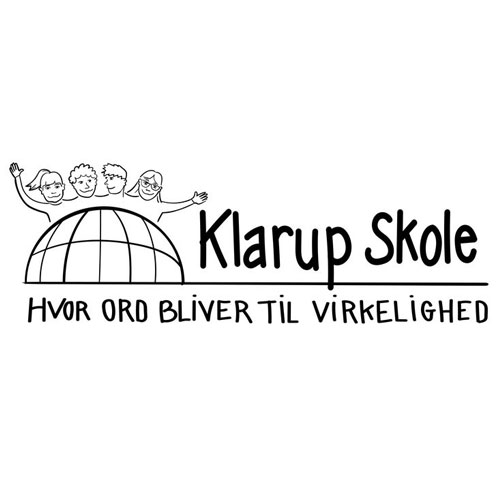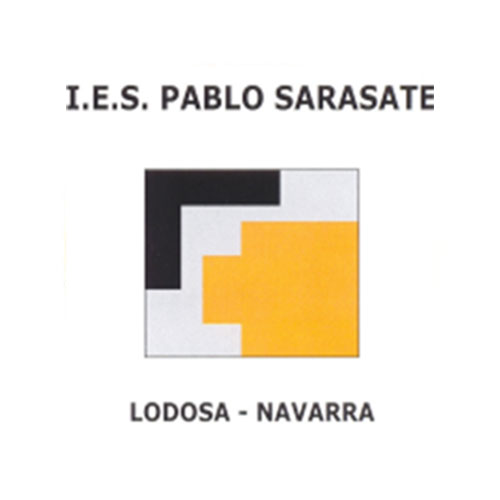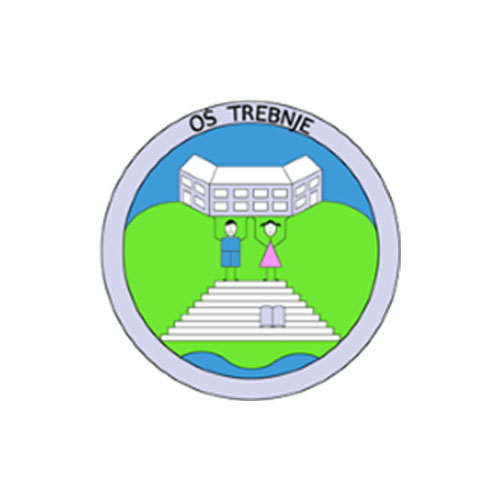Partners

Grm Novo Mesto, Slovenia
Grm Novo Mestro is a center of biotechnics and tourism which consists of several units; secondary school for Agriculture Grm and biotechnics gymnasium, secondary school for gastronomy and tourism, vocational college, and dormitory. It is an active member of the Agriculture Council at the Ministry of Agriculture, as well as round the clock collaborator with the Ministries of Education, Science and Sports. Key areas of development in rural areas includes sports, hotels, restaurants, green tourism, and food production (dairy products, meat products, fruit products, wine, bakery products). All recipes developed and tested products are produced in on site.
Their research focuses primarily on food consumption, economic efficiency of individual business ideas, primary agricultural activities, microbiological and biotechnological analytics, gastronomy. It educates 1.000 students on secondary level and on 6th and 7th Bologna level (College) and employs 170 people on a 250ha educational land.

Klarup School, Denmark
Klarup School is a tuition free public school with approximately 780 pupils. The school provides primary and lower secondary education for students from 6 to 15 years. The staff constitutes a total of 90 teachers, pedagogues, technical and administrative staff as well as external professionals. Their area of activities is related to education according to the Danish curriculum within different subjects such as Danish, Math, English, German, Physics, Chemistry, Nature and Technology, Biology, Cooking, Arts, Design and Crafts, PE and subjects related to society, culture and history as well as optional subjects.
Klarup School is a certified 2030 school. This means that pupils and staff work intensively with the UN Sustainable Development Goals in both curricular and extracurricular activities throughout the school year. This work is organized and comprised in a detailed 3-year-plan composed by the Management in collaboration with the International Team with staff members from all departments of the school. The plan is adapted continuously according to the activities and ideas of pupils and staff. Examples of pupils’ activities include Art and sculpture expositions only using recycled materials; a recollection of used batteries in the local community (1200 kg of batteries recollected, 2022); Cooking projects using only locally produced meat and vegetables and innovation in collaboration with local partners in the restaurant industry in the city of Aalborg.

Pablo Sarasate High School, Spain
Pablo Sarasate High School is located in Lodosa, a Spanish town (5,000 inhabitants) in the Ribera region of Navarre, 80 kilometres south-west of its capital, Pamplona and welcomes 344 students from 5 towns in the area including teenagers come from several foreign countries; in fact, 19,69% of students belong to ethnic minorities, mainly from the Maghreb.
An important policy of the school is to foster the relationship with the students’ families, who take active part in the school life through the Parents Association (APYMA), and parent-teacher meetings. Such link translates in a desire to make the most of the teaching-learning experience with the aim of enabling the students’ emotional, academic, and intellectual development so that they become responsible European citizens eager to work for a better future.
Pablo Sarasate High School is determined to boost its internationalization and to develop the European dimension in its classes. This explains why, a European Project Working Group has been recently created to as part of the process to achieve this objective. It is also one of the school´s goal to become a referent in the new school model that the society demands: inclusive, committed, plural, multilingual and international.

Trebnje Primary School, Slovenia
Trebnje Primary School in Slovenia, as its primary activity, carries out educational work for the population of primary school children.
As part of its activities, it also implements educational, developmental, and applied projects, with which it develops good pedagogical practice, explores the possibilities of developing educational work and connecting with the narrower and wider environment. Through these activities, it creates a network of partnerships and strengthens cooperation with various stakeholders.
The school is usually involved in various types of projects to serve the needs or enhance capacity in different areas. For example, one of the latest projects was aimed at developing competencies for working with children with special needs and strengthening and disseminating e-competencies and capabilities, as well as developing key competencies of innovation, entrepreneurship and connecting the school with the social environment for both students and teachers.
Also, within the projects, the school actively carry out activities with which it develops awareness of the connection between movement and its impact on the brain with the learning process.
As an educational institution one of the goals of the school is to actively contribute to developing awareness of the importance of sustainable development, which otherwise ensures the efficient flow of people and goods with minimal negative environmental impacts which explains why the school is actively involved in the project; Sustainable Mobility – Let’s Walk, in collaboration with the Ministry of Infrastructure.

Restaurant Alimentum, Denmark
Alimentum is located in Aalborg City. It is a restaurant that focuses on vegetables, the sea, and the areas around us. As a restaurant, it promotes sustainability when it comes to nature and a relaxed atmosphere when it comes to their customers. The 360-degree nomination Alimentum, is a member of the Network for Green Retail. It is also the only restaurant in North Denmark which has been included in the 360 EatEatGuide; a guide which takes a political view on gastronomy and sustainability.
The restaurant collaborates with local farmers and in some cases, the daily operations of such partners are handled by the Alimentum´s inhouse farmer Morten.
Alimentum has been a part of the local project Gastronomy and Sustainability in Aalborg in the periods 2019 and 2020. It had about 40 pupils visiting the restaurant during this project period. The restaurant supports local concepts, initiatives and believes that increase value in people and the society. Simply put, sustainability is deeply rooted in the restaurant´s modus operandi. This is demonstrated by their extreme focus on both their operations and via the raw materials they use from the farms.

Aalborg Municipality, Denmark
Aalborg Municipality is the third largest municipality in Denmark with a population close to 220.000. Aalborg. It is located in the northern part of Denmark. Aalborg Municipality has approximately 19.000 student in the aged 6-16 years old.
Aalborg Climate and Environment administration and Aalborg Children and Teenagers Administration is both a governmental body under the Municipality’s direction.
One of Aalborg Climate and Environment administration tasks is to guide restaurants and smaller food suppliers to be more sustainable through Center for Green Transition. We must take care of each other and our surroundings.
This is the slogan in Aalborg when it comes to sustainability. Through several projects in Center for Green Transition they are trying to provide tools to make it easier to act green and sustainably. They develop ideas, tips, and suggestions for actions in collaboration with companies, housing associations, educational institutions. Sustainable development only takes place through community and partnership. In Aalborg Municipality, they work continuously and diligently to incorporate the 17 sustainable development goals into their work. Among other things, the SDGs are the starting point in the Sustainability Strategy 2020-2024, which goes across the municipality’s administrations and through projects. The holistic orientation and co-creation (partnerships) are the way forward when they are trying to create sustainable growth as a city.
One of Aalborg Children and Teenagers Administrations main tasks is to guide and support their 55 local primary and lower secondary schools for pupuils aged 6-17 in the district. This includes, but is not limited to, theoretical help, leadership support, experimental learning, and internationalization. Aalborg Children and Teenagers Administration has around 150 employees and they support around 3.500 teachers.
Aalborg Children and Teenagers Administrations is responsible for the municipality’s primary and lower secondary schools, special schools and Pedagogical Psychological Counseling (PPR).
